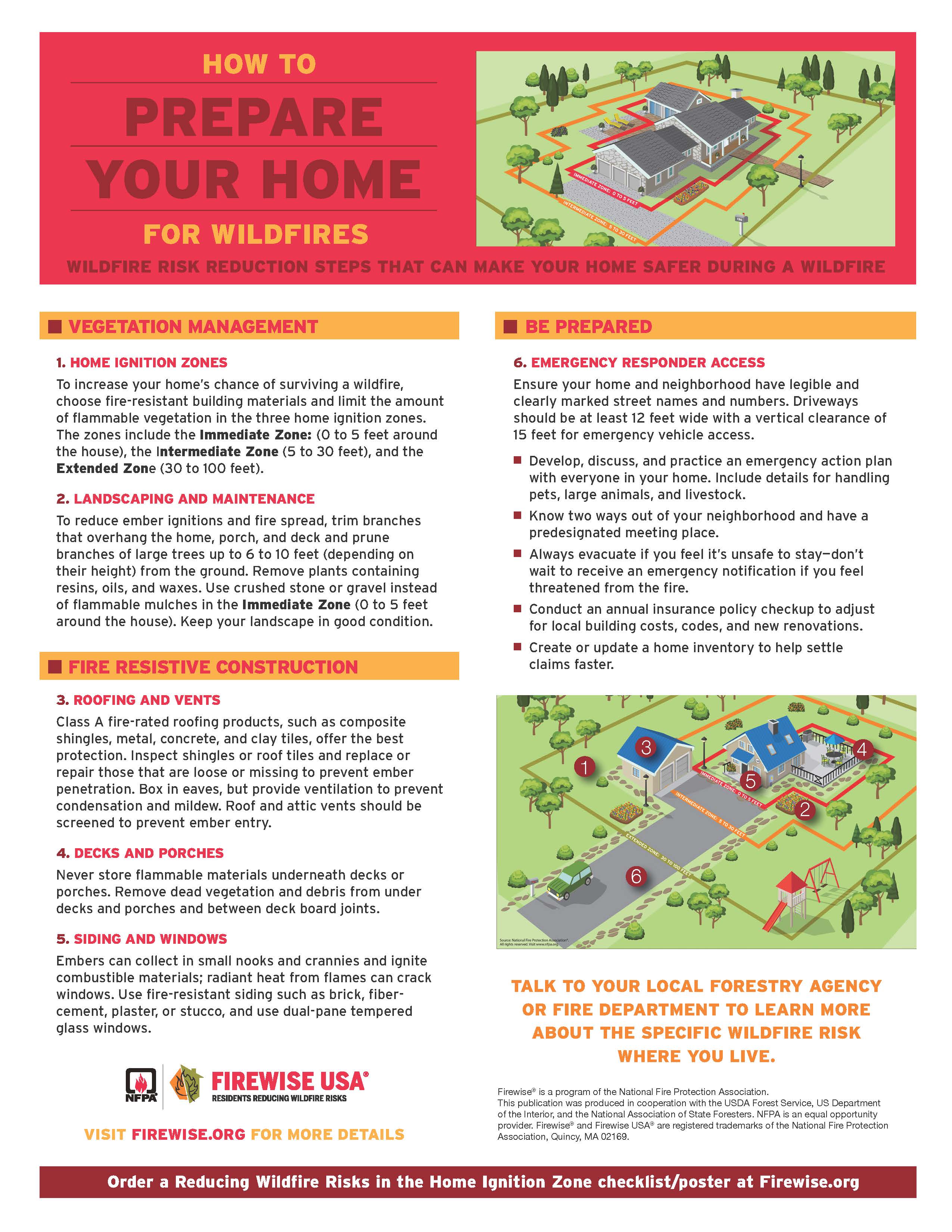
By Gloriann Martin, USAG Fort Meade Public Affairs
Safety takes precedence here during hurricane and wildfire season. This time of year brings unique challenges that demand preparedness for severe weather and wildfire prevention. Here are essential safety measures for our community.
Understanding Tropical Storms and Hurricanes
The Atlantic Hurricane season spans from Jun. 1 to Nov. 30, bringing with it the threat of tropical storms and hurricanes. These massive storm systems can unleash high winds, heavy rainfall, storm surges, flooding, rip currents, and tornadoes.
Preparing for Hurricane Season
The National Oceanic and Atmospheric Administration predicts a near-normal hurricane season. Here's how to prepare according to Director of Operations and Emergency Manager, Tina OdenBeaudry, Fort Meade Directorate of Plans, Training, Mobilization and Security:
-
Create a Family Emergency Plan – Ensure your family knows what to do during a hurricane.
-
Special Needs Planning – Account for family members with special needs, including children and older adults.
-
Pets Matter Too – Remember your furry friends in your emergency plans.
-
Know Your Routes – Familiarize yourself with evacuation routes.
-
Evaluate Your Home – Assess your home's vulnerability to flooding, wind, and storm surges.
-
Evacuation Areas – Determine if you live in a hurricane storm surge evacuation area.
-
Stay Informed – Knowing your zone, understanding national weather warnings and watches, reviewing your insurance coverage, and signing up for alerts through your county's Office of Emergency Management.
-
Prepare an Emergency Supply Kit – Visit https://www.youtube.com/watch?v=FVwlcifEWm0 to learn how to build yours.
-
Get Involved – Safety is a collective effort. Get involved in your community and help others plan.
Understanding Severe Weather Alerts: Watch vs. Warning
During hurricane season, understanding the difference between a "watch" and a "warning" is crucial. A "watch" is issued when there's potential for severe weather to occur, while a "warning" is issued when severe weather is happening, posing a threat to life or property.
Installation Fire Regulations
Understanding and adhering to Installation Fire Regulations is crucial for all residents and personnel. These regulations ensure your safety and protect the community and installations. Chief John Trottman, a Fire Prevention Expert at the Fort Meade Department of Emergency Services, provides the following guidance:
-
Maintain Safe Distances: For those who enjoy using fire pits and fireplaces for comfort, ensure they are placed at least 30 feet away from structures and clear of leafy canopies. Exceptions can be reviewed through the Fire Prevention Division to minimize fire risks.
-
Weather Awareness: During periods of extreme weather conditions such as high temperatures, low humidity, and strong winds, outdoor fire pit or fireplace usage is strictly prohibited. This measure mitigates potential ignition sources when conditions are hazardous.
-
Safe Ignition: Start fires using newspaper and kindling wood or fire starter logs. Avoid flammable liquids like gasoline or lighter fluid to minimize the risk of dangerous flare-ups.
-
Fuel Selection: Burn only dry, seasoned wood or follow manufacturer recommendations for artificial logs. Burning more than one log at a time is discouraged to maintain control.
-
Prevent Sparks and Embers: Outdoor fire pits and fireplaces must be equipped with screens to contain sparks and embers, preventing them from igniting nearby structures or foliage.
-
Always Be Prepared: Keep a fire extinguisher or garden hose ready, in addition to the one available indoors, whenever engaging in burning activities.
-
Fire Service Authority: Fort Meade Fire and Emergency Services personnel hold the authority to determine when a fire must be extinguished, ensuring constant vigilance over fire safety.
Stay Informed with Garrison Weather Call
-
Weather is monitored daily in the Installation Operations Center.
-
The garrison commander or his representative is responsible for making a weather call.
-
Situation-dependent, weather calls are made the night before the event (around 9 p.m.) or by 4 a.m. on the morning of the event.
-
Tenant organizations generally mirror the garrison’s status.
-
Receive notifications by calling 301-677-MEAD (6323), through Alerts push notifications, on the Fort Meade website or social media, Digital Garrison, or by checking local TV and radio stations.
Sign Up for ALERTS: https://alert.csd.disa.mil/
-
Click "DoD and All Services seal"
-
Select your authentication cert
-
Work through the selections on the left side of the screen under "Dashboard"
-
Add your personal cell phone to receive alerts outside of work.
Safety is a commitment to safeguarding our community, homes, and environment. Stay informed, stay prepared, and stay safe. Together, we can overcome any challenges that these seasons may bring.
Editor’s Note: Parts of this article was written with the assistance of ChatGPT, an AI language model developed by OpenAI.





